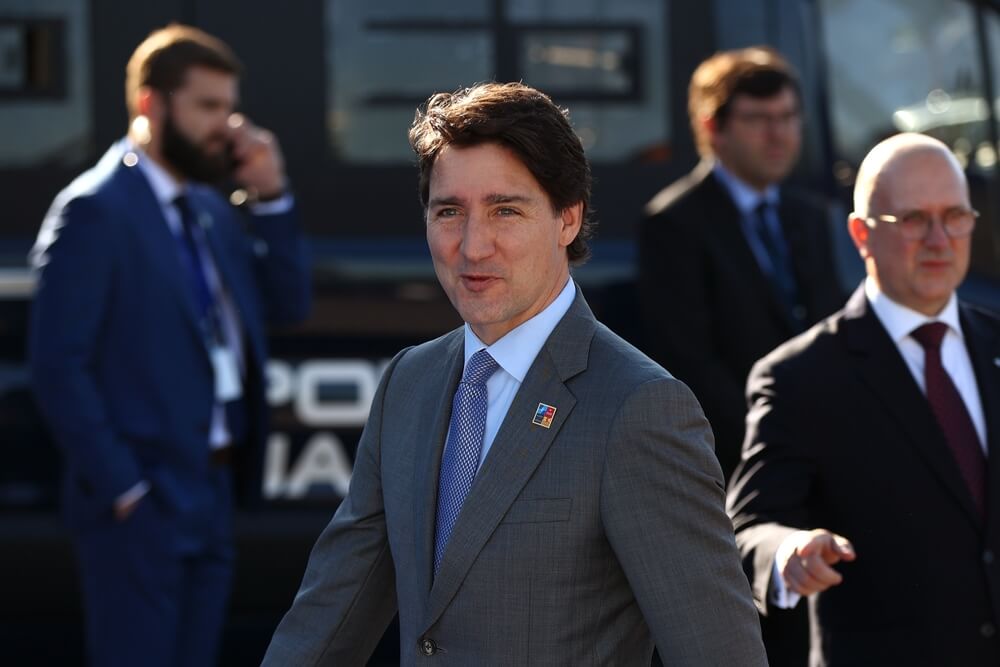Western allies are walking on a tight rope as they position themselves regarding the diplomatic standoff between India and Canada, which has resulted in strained relations between the two nations.
The US is also on a diplomatic downswing when it comes to relations with India, due to the investigation into the alleged involvement of Indian government agencies in the attempt to kill a dissident on US territory.
The grouping of allies with Canada is expected and unquestionable, but does the joint confrontation with India have consequences for their shared effort to attract New Delhi into their orbit as a strategic partner in the Indo-Pacific region?
Instead of calming Indo-Canadian relations, a year after Canadian Prime Minister Justin Trudeau's shocking announcement that the Indian government was involved in the murder of Hardeep Singh Nijjar, the leader of the Sikh separatist movement, an even greater aggravation followed.
An investigation in Canada confirmed the involvement of Indian government agents in criminal activities, including murder, intimidation, and extortion, so the government expelled six Indian diplomats, including the high commissioner to Canada, Sanjay Kumar Verma.
In reciprocity, New Delhi also expelled six Canadian diplomats, continuing to deny any connection to last year's political assassination in Canada.
The roots of the conflict
India has given no indication that it might cooperate with Canada in the investigation, which Ottawa has been urging. Moreover, it insists that the whole case is politically motivated and that Canada tolerates political dissidents, whom New Delhi treats as terrorists.
The roots of the conflict are therefore very deep and give the impression that they are unsolvable. The conflict has caused significant practical damage in the past year, particularly in the economy, where mutual trade has decreased by $1 billion after reaching a record in 2022.
The conflict between Canada and India has extended beyond bilateral frameworks
Moreover, the conflict between Canada and India has extended beyond bilateral frameworks, posing a threat to the strategic plans of both the West and India regarding cooperation in the Indo-Pacific region and globally.
Indian sources emphasise the fact that the Canadian investigation had great support from the "Five Eyes" intelligence group, which also includes the US, UK, Australia, and New Zealand.
"From the beginning as of last summer, we have worked closely with our Five Eyes partners, particularly with the US, where they have gone through a similar pattern of behaviour from India in regard to an attempted extrajudicial killing. And we will continue to work with our allies as we stand up together for the rule of law," said PM Justin Trudeau last Monday.
He referred to a similar case of the attempted murder of another separatist activist, Gurpatwant Singh Pannun, in New York, which US prosecutors also linked to Indian government agents last November.
India cooperates with the US
However, New Delhi handles the US case with less resentment than the one in Canada, allowing a special Indian team to conduct the investigation and collaborate with US agencies. That cooperation led to the arrest of a suspect for attempted murder in New York and his extradition to the US.
The Indian government's different approach to the US and Canada suggests that the US could play a more mediating role in thawing relations.
 Both India and its Western allies have a vested interest in maintaining and enhancing their partnership - Justin Trudeau
Both India and its Western allies have a vested interest in maintaining and enhancing their partnership - Justin Trudeau
Both India and its Western allies have a vested interest in maintaining and enhancing their partnership. All Western strategies for the Indo-Pacific regard India as a key partner for cooperation in the region, especially in countering China's growing aggressive economic and security influence.
India shares that interest and wants to develop a partnership with the West precisely to counter China as its principal economic and security competitor in the region.
American mediation during the campaign
“Washington should first review Canada’s findings and, if it believes they are credible, quietly use its influence to convince New Delhi to cooperate with the RCMP’s investigations. This can happen behind closed doors, saving all parties from major embarrassment and avoiding the public scrutiny that has fed the dispute over the past thirteen months,” said Xavier Delgado, a researcher at the Wilson Centre's Canada Institute.
India is also signalling its willingness to accept American mediation while maintaining its dignity and seeking guarantees from its most powerful Western ally.
The sudden tightening of relations between Canada and India calls for swift action from Washington, despite the domestic priority in the US
The timing is not favourable for such a development, given the focus of the US administration on the forthcoming presidential elections.
However, the sudden tightening of relations between Canada and India, which came with the expulsion of each other's diplomats, calls for swift action from Washington, despite the domestic priority in the US.